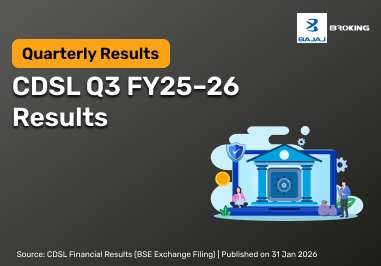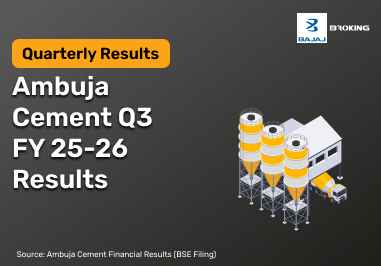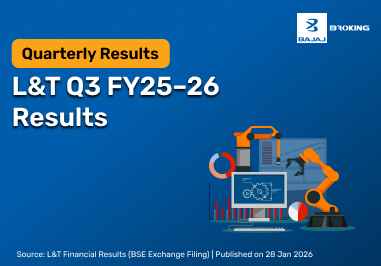As an Indian taxpayer, you must stay informed about the income tax returns filing due date for the financial year 2024–25. Filing your income tax return on time helps you avoid penalties, ensures smoother tax rebate claims, and keeps your financial records up to date. Whether you are salaried, self-employed, or a pensioner, adhering to the ITR filing last date is crucial. Filing early also gives you time to make corrections, if needed, before the deadline. The government has already enabled various filing utilities, and tracking the ITR filing due date now helps avoid last-minute errors or delays.
ITR-1 and ITR-4 Excel Utility Released for AY 2025–26
The Central Board of Direct Taxes (CBDT) has released the Excel utilities for ITR-1 and ITR-4 for assessment year 2025–26. This move enables you to start preparing your income tax return filing early. ITR-1 is meant for salaried individuals with income up to Rs. 50 lakh, while ITR-4 is for presumptive income taxpayers. The Excel-based format helps offline preparation of returns, especially if you are not using third-party tax software. You can download the utility from the official income tax portal. Filing early using these utilities helps you stay ahead of the ITR filing last date and avoid system overloads.
Start date to file ITR for FY 2024–25
The Income Tax Department officially opened the income tax return filing portal for FY 2024–25 on 1st April 2025. From this date, you are allowed to start submitting your ITR using the appropriate forms based on your income type. This window gives you enough time to collect all your financial documents such as Form 16, investment proofs, and bank statements. Filing early helps you avoid portal traffic close to the ITR filing due date. If you are eligible for a tax rebate or refund, filing earlier also helps you receive it sooner. The return window remains open until the notified deadline.
Last date to file ITR for FY 2024–25
The last date to file your ITR for financial year 2024–25 (assessment year 2025–26) without a late fee is 31st July 2025 for individuals not subject to tax audit. This is a key income tax returns filing due date for most salaried taxpayers and freelancers. Missing this ITR filing last date may lead to penalties under Section 234F. Timely filing ensures smooth processing of tax rebate claims, faster refunds, and helps you maintain a clean tax record. If your income is below the taxable limit, filing is not compulsory, but it can be beneficial for documentation and credit purposes.
ITR due dates for FY 2024–25
Filing your return within the due date depends on your income type, audit requirement, and filing category. The table below helps you understand applicable deadlines for various taxpayer categories.
Category
| Due Date
| Remarks
|
Individual / HUF (Non-audit cases)
| 31st July 2025
| Salaried individuals and freelancers
|
Businesses requiring audit
| 31st October 2025
| Includes proprietorships and companies under audit
|
Companies (non-transfer pricing cases)
| 31st October 2025
| Firms and LLPs not involved in international transactions
|
Transfer pricing cases
| 30th November 2025
| International transactions requiring Form 3CEB
|
Revised or belated returns
| 31st December 2025
| With applicable late fees if filed after 31st July
|
Consequences of missing the ITR filing Deadline
Filing your ITR after the deadline can lead to more than just a penalty. The consequences affect your tax compliance and financial credibility. Here is what to expect:
Late filing fee under Section 234F
A fee of up to Rs. 5,000 is applicable if you miss the ITR filing due date. For income below Rs. 5 lakh, the penalty is restricted to Rs. 1,000.
Interest under Section 234A
If you owe taxes and file late, you pay 1% interest per month on the outstanding amount from the due date until payment.
Delayed refund
If eligible for a refund, it may get delayed if your return is filed late, as the processing queue gives priority to timely submissions.
Loss of carry-forward of losses
You cannot carry forward capital or business losses if the return is not filed on or before the ITR filing last date.
Reduced credit score
Late filings may affect your creditworthiness when applying for loans, visas, or financial assistance.
What if ITR filing is Missed?
Missing the original ITR filing due date does not mean you cannot file your return. However, you must be aware of the implications and options available:
File a belated return
You can still file under Section 139(4) by 31st December 2025, but with applicable penalties.
Pay late fees and interest
Late filing attracts a fee under Section 234F and interest under Section 234A if tax is due.
Cannot carry forward losses
If you miss the deadline, you lose the ability to carry forward capital and business losses to future years.
What Happens if There are Mistakes in ITR filing?
Even if you submit your ITR on time, errors can occur. Here is what to do if you discover a mistake:
File a revised return
You can revise your return under Section 139(5) before 31st December 2025, correcting any inaccuracies in the original submission.
Updated return window
If you miss the revision window, you may file an updated return within two years under Section 139(8A), with additional tax and interest.
Correct details carefully
Ensure personal information, PAN, Aadhaar, bank details, and income figures are accurate to avoid processing delays or notices.
Difference between financial year and assessment year
Understanding the difference between Financial Year (FY) and Assessment Year (AY) is essential while filing your income tax return. The financial year is the year in which you earn the income, while the assessment year is when you file your return for that income. For example, income earned from 1st April 2024 to 31st March 2025 is for FY 2024–25. You will file the return for this income in AY 2025–26. This distinction matters for forms, tax calculations, and rebate eligibility. It also helps when checking deadlines like the ITR filing due date and preparing documents for income tax return filing.
Important due dates for advance tax payments in FY 2025–26
If your total tax liability exceeds Rs. 10,000 in a financial year, you must pay advance tax in instalments. The schedule is listed below.
Instalment
| Due Date
| Amount Payable
|
1st Instalment
| 15th June 2025
| At least 15% of total estimated tax
|
2nd Instalment
| 15th September 2025
| Cumulative 45% of total tax
|
3rd Instalment
| 15th December 2025
| Cumulative 75% of total tax
|
4th Instalment
| 15th March 2026
| Cumulative 100% of total tax
|
Paying in time avoids interest under Sections 234B and 234C and ensures smoother income tax return filing later. This applies to salaried individuals with other income, freelancers, and businesses.
Conclusion
Being proactive about your income tax return filing helps you stay financially disciplined and compliant. Keeping track of the ITR filing last date, advance tax instalments, and the right forms ensures you avoid unnecessary penalties and delays. Whether you are salaried, freelance, or run a business, filing your return before the ITR filing due date enables faster refunds, tax rebate benefits, and peace of mind. Filing responsibly is not just a legal obligation—it is your personal contribution to a structured financial system.














